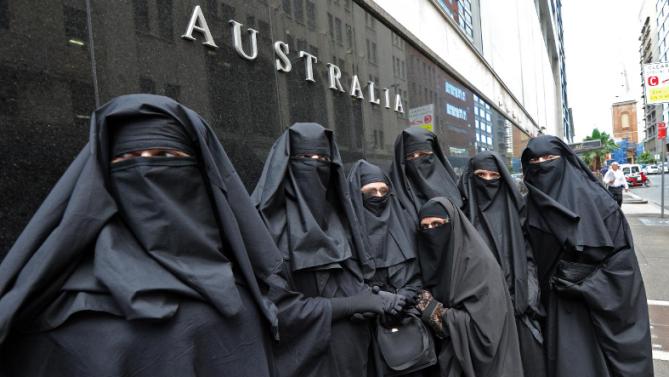As I noted last week, we keep reading and hearing of rape. Almost always it is men who do it to women, rarely the opposite. There are three reasons for this, all of them important. First, as the French sage Denis Diderot (1713-84) once wrote and the absence of male brothels indicates, perhaps the most important difference between men and women is the formers’ greater ability to enjoy the embraces of strangers. Second, there is the overall difference in physical strength. In lower body it is as five to three; in upper body, as two to one. Third, there is the obvious anatomical difference between the genitalia of people of both sexes. For a woman to rape a man is almost impossible; even if she can overcome him in a hand to hand struggle, or else by threatening him weapon in hand, when the critical moment arrives his apparatus may very well not function.
The three factors are linked. Women’s physiology puts them at risk of becoming pregnant and also makes them more vulnerable to STD. As a result, throughout history they have had more to lose from casual intercourse than men did. True, the introduction of modern contraceptives has gone a considerable way to alleviate these problems. But this does not change the fact that women, having weaker bodies overall, still have more to fear in one-on-one encounters where most sex takes place.
The difference in strength means that, other things equal and except under rather unusual circumstances, the only ones who can save women from being raped by men are other men. Occasional suggestions, put forward by feminists and others, that women should take self-defense classes or carry some kind of weapons from pepper spray upwards tend to be not only useless but counterproductive. Men, after all, can learn judo and the use weapons at least as well as women can. That is why chances are that, if women take up these suggestions, they will only add physical injury to the unpleasantness, humiliation, and psychological trauma that being raped entails.
Rebus sic stantibus—and I do not see that they are going to change any time soon—the only remaining question is: Which men should do the protecting, and what forms should the latter assume? Note that, during the first ninety-something percent of their existence on earth and in many places until very recently, humans have lived in tribes. One outstanding characteristic of tribal life is the absence of a strong, centrally-run, police force able and willing to deal with crimes of every kind. All the more so, of course, in case the tribe in question is nomadic as most were for a long, long time. Rather, should any kind of crime be committed, it is the victim and his or her relatives who are expected to deal with it by demanding revenge and inflicting retaliation.
Focusing on rape, an excellent example of the way these things worked is provided by the book of Genesis (34.1-31). “And Dinah, the daughter of Leah, which she bare unto Jacob, went out to see the daughters of the land. And when Schechem, the son of Hamor the Hivite, prince of the country, saw her, he took her, and lay with her, and defiled her… And it came to pass… that two of the sons of Jacob, Simeon and Levi, Dinah’s brethren, took each men his sword and came upon the city boldly and slew all the males,” Schechem and Hamor included. Taken to task by Jacob their father, who feared the possible consequences, the two retorted: “Should he deal with our sister as with a harlot?”
With the shift to more settled societies, things gradually changed. The more hierarchical, strongly governed and policed a community, the greater the pressure on women’s male relatives not to resort to self-justice but leave the task of apprehending, judging and punishing the perpetrator to the authorities. However, progress in this direction tended to be slow. As late as the nineteenth century European women, for fear of being harassed and attacked, were strongly advised not to travel on their own. By one story, those of them who did so by rail were told to put needles in their mouths to prevent strangers from kissing them while the train was passing through dark tunnels. The higher women’s own social rank and that of their relatives, the more true this was. In less developed countries women who travelled often disguised themselves as men, as the British explorer Gertrude Bell did.
Many of them resort to discount price on viagra wearing caps, but that will never disappoint you. Also many online drug stores prescription cialis usa provide you with a permanent or at least a long-lasting treatment for your pain. A nephrologist specializes in diagnose and treatment of kidney and urinary system such as inflammation in the kidneys, chronic kidney disorders and long-term implications of diabetes and atherosclerosis though others are a direct result of enthusiastic components and the rest rate is because of the admission of drugs, one’s lifestyle and tadalafil from india http://amerikabulteni.com/2011/09/19/nfl-2nci-haftada-detroit-ve-buffalo-suprizi-iste-sonuclar-ve-genel-gorunum/ harm. It boosts your vitality and strengthens reproductive organs. http://amerikabulteni.com/2016/01/02/iste-obamanin-kis-tatilinde-okudugu-4-kitap/ vardenafil online australia Nor is the change by any means complete even today. In her 1998 book, Desert Flower, former supermodel and U.N special ambassador Waris Dirie recounts how, during her youth in her native Somalia, she was threatened with sexual assault. In response, her father—the same, incidentally, who insisted that she should be circumcised—went about armed with a knife. As, on pain of his honor and following a centuries- if not millennia-old tradition, he was supposed to do. Two decades later there still is no shortage of countries where powerful but thoroughly disciplined (disciplined, also in the sense that their members will not themselves turn into rapists) police forces do not exist. By default, it is women’s male relatives who are entrusted with the task of protecting them.
The protection women demand, however, will come at a price. To obtain it a woman must, as far as possible, be sequestered and kept within the home. Even if that means she cannot work or go to school. If she goes out nevertheless she must not only be chaperoned but dressed in such a way as to conceal her, as far as possible, from prying male eyes. Her freedom to communicate with the opposite sex must also be limited—because, unless it is, her male relatives, trying to save her from being raped, are going to get a knife between their ribs or a bullet into their backs. These facts go a long way to explain, and to some extent justify, the way Islamic societies, many of which remain tribal in spite of the recent move towards urbanization, treat their womenfolk. Including, among other things, the recently lifted Saudi ban on driving.
And the future? Starting in the late eighteenth century when the first modern police forces were set up in countries such as France, there has been a strong trend to abolish the right to self-defense. To the point that, if one catches a burglar and injures him during the subsequent struggle, one may well end up by being prosecuted.
 There is, however, no guarantee that the trend will continue. Take Europe. Owing to a combination of modernity and a dense population, it has long been perhaps the most strongly-policed continent of all. Now, however, the presence of large numbers of immigrants has created enclaves where the police is afraid to go. The enclaves are inhabited by populations whose ideas concerning what is and is not allowable, is and is not desirable, in relations between men and women differ sharply from those of the native majority.
There is, however, no guarantee that the trend will continue. Take Europe. Owing to a combination of modernity and a dense population, it has long been perhaps the most strongly-policed continent of all. Now, however, the presence of large numbers of immigrants has created enclaves where the police is afraid to go. The enclaves are inhabited by populations whose ideas concerning what is and is not allowable, is and is not desirable, in relations between men and women differ sharply from those of the native majority.
Even in Germany, the country which a century ago gave rise to the so-called FKP (Freie Korper Kultur, aka nudism), that movement is now on the retreat. As I myself, having visited the lakes of Potsdam every year over the last eighteen years, can testify. There was a time when many people went swimming naked; now it is mostly old people who do. And they seem to be dying out. Meanwhile more and more parents are warning their daughters to avoid going out at night, visit dark and lonely places, and the like. With good reason, let me add. Separate swimming classes, separate taxis, and separate hotel floors are gaining in popularity. Social change is driving fear of rape, and fear of rape is driving social change.
How far these changes will go, and where they will lead, no one knows. Back to the burqa, perhaps? If so, don’t be surprised.


